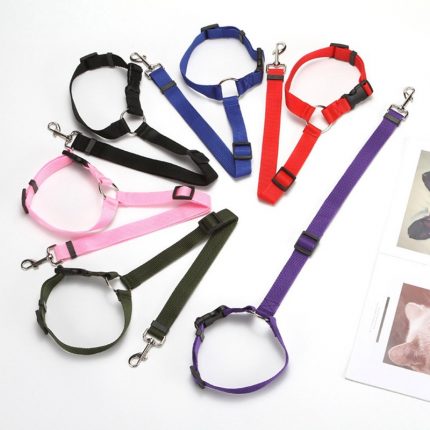Why Does My Yorkie Shake?
Yorkshire Terriers, affectionately known as Yorkies, are popular small dog breeds known for their adorable appearance and lively personalities. However, one common behavior that often puzzles Yorkie owners is their tendency to shake or tremble. If you’ve ever wondered why your Yorkie shakes, this article aims to shed light on the possible reasons behind this behavior.
Shaking in Yorkies can be attributed to various factors, both physiological and psychological. One of the primary reasons for their trembling is their small size and high metabolism. Due to their petite stature, Yorkies have a higher metabolic rate, which means they generate and lose body heat more quickly than larger dog breeds. Consequently, they may shake as a natural response to regulate their body temperature, especially in colder environments.
Another potential cause of shaking in Yorkies is anxiety or stress. These little dogs are known for their sensitive nature and can easily become anxious or fearful in certain situations. Common triggers include loud noises, unfamiliar surroundings, separation anxiety, or even changes in routine. When a Yorkie feels stressed, their body may involuntarily shake as a physical manifestation of their emotional state.
Furthermore, Yorkies are prone to hypoglycemia, a condition characterized by low blood sugar levels. Hypoglycemia can occur due to various reasons, such as inadequate nutrition, skipping meals, or excessive physical activity. When a Yorkie’s blood sugar drops, it can lead to shaking, weakness, and even seizures. It is crucial for Yorkie owners to ensure their furry companions receive a balanced diet and regular meals to prevent hypoglycemic episodes.

Additionally, certain medical conditions can contribute to shaking in Yorkies. For instance, Yorkies are susceptible to liver shunts, a congenital condition where blood bypasses the liver, leading to a buildup of toxins in the bloodstream. This can cause tremors and other neurological symptoms. Other health issues that may result in shaking include allergies, arthritis, or even pain.
In conclusion, there are several reasons why your Yorkie may shake. It could be a natural response to regulate body temperature, a manifestation of anxiety or stress, a symptom of hypoglycemia, or a sign of an underlying medical condition. As a responsible Yorkie owner, it is essential to observe your pet closely, take note of any accompanying symptoms, and consult with a veterinarian if you have concerns about their shaking behavior. Understanding the potential causes can help you provide the necessary care and support to ensure your beloved Yorkie’s well-being.
Understanding the Reasons Behind Your Yorkie’s Shaking
High Metabolism and Temperature Regulation
One of the primary reasons why Yorkies shake is their high metabolism and their need to regulate body temperature. Yorkies have a small body size and a relatively large surface area compared to their weight. This means that they lose body heat more quickly than larger dog breeds. Shaking or trembling can be a natural response to generate heat and maintain their body temperature, especially in colder environments. It is important to provide your Yorkie with warm and comfortable surroundings to help alleviate this shaking behavior.
Anxiety and Stress
Yorkies are known for their sensitive nature, and they can easily become anxious or stressed in certain situations. Loud noises, unfamiliar environments, separation anxiety, or changes in routine can all trigger anxiety in your Yorkie. When experiencing anxiety or fear, their body may shake involuntarily as a physical manifestation of their emotional state. Creating a calm and secure environment for your Yorkie, along with positive reinforcement training techniques, can help reduce their anxiety and minimize shaking episodes.
Hypoglycemia and Blood Sugar Levels
Hypoglycemia, or low blood sugar levels, is a common condition in Yorkies. Due to their small size and high energy levels, Yorkies are prone to fluctuations in blood sugar. Skipping meals, inadequate nutrition, excessive physical activity, or even stress can contribute to hypoglycemic episodes. When a Yorkie’s blood sugar drops, they may experience shaking, weakness, confusion, and even seizures. It is crucial to feed your Yorkie a balanced diet, provide regular meals, and monitor their blood sugar levels to prevent hypoglycemia-related shaking. If you suspect your Yorkie is experiencing hypoglycemia, consult your veterinarian for proper diagnosis and treatment.
Underlying Medical Conditions
In some cases, shaking in Yorkies can be a symptom of an underlying medical condition. Yorkies are prone to certain health issues, including liver shunts, allergies, arthritis, and pain. Liver shunts are congenital conditions where blood bypasses the liver, leading to toxin buildup and neurological symptoms such as shaking. Allergies, whether food-related or environmental, can also cause shaking in Yorkies. Arthritis and pain from injuries or aging can contribute to shaking as well. If your Yorkie’s shaking is persistent, accompanied by other concerning symptoms, or if you suspect an underlying health issue, it is essential to seek veterinary care for a proper diagnosis and appropriate treatment.
Conclusions
In conclusion, understanding why your Yorkie shakes is crucial for ensuring their health and well-being. For more insights into this behavior, visit geepets.com where you can find a comprehensive guide on “Why Does My Yorkie Shake” and other related canine behaviors. Additionally, for further reading and resources on Yorkies and other dog breeds, the American Kennel Club (AKC) website akc.org offers a wealth of information on dog health, training, and care tips that can help you better understand and care for your furry friend. Both these resources are invaluable for any pet owner looking to provide the best for their dogs.

Practical Recommendations for Addressing Your Yorkie’s Shaking
1. Ensure a Comfortable Environment
Creating a warm and comfortable environment for your Yorkie is essential, especially in colder temperatures. Provide them with cozy bedding, blankets, or even a heated dog bed to help regulate their body temperature and reduce shaking episodes. Keep their living space free from drafts and ensure they have a safe and secure place to rest.
2. Minimize Stress and Anxiety Triggers
Identify and minimize situations that cause stress or anxiety for your Yorkie. Loud noises, unfamiliar surroundings, or changes in routine can be particularly stressful for them. Use positive reinforcement techniques and desensitization exercises to help them overcome these triggers gradually. Consider using calming aids such as pheromone sprays or anxiety wraps to provide additional support.
3. Feed a Balanced Diet and Monitor Blood Sugar Levels
Proper nutrition is crucial for managing your Yorkie’s blood sugar levels and preventing hypoglycemia, a common concern that might lead you to ask, “Why does my Yorkie shake?” Feeding them a high-quality, balanced diet specifically formulated for small breeds is essential. This is particularly important because the question, “Why does my Yorkie shake?” can often be related to their blood sugar levels.
Ensure they receive regular meals and avoid prolonged fasting periods to prevent instances that might cause you to wonder, “Why does my Yorkie shake?” Monitoring their blood sugar levels with the guidance of your veterinarian is vital, and making any necessary adjustments to their diet or feeding schedule can help address the underlying concerns behind, “Why does my Yorkie shake?”
It’s clear that the diet and feeding schedule of your Yorkie play a significant role in answering the question, “Why does my Yorkie shake?” By focusing on their nutritional needs and avoiding situations that could lead to hypoglycemia, you’re directly addressing one of the potential reasons behind the worrying symptom reflected in the query, “Why does my Yorkie shake?” Regular veterinary check-ups and a vigilant eye on their daily diet routine can significantly reduce the frequency of this concerning behavior and provide a more stable and healthy lifestyle for your small breed dog, ensuring that the question, “Why does my Yorkie shake?” becomes less of a concern in your day-to-day life with your beloved pet.
4. Regular Exercise and Mental Stimulation
Engaging your Yorkie in regular exercise and mental stimulation is crucial for their overall well-being. Yorkies have high energy levels and need ample opportunities to burn off excess energy, which directly addresses the concern of “Why Does My Yorkie Shake?” Taking them for daily walks, playing interactive games, and providing them with puzzle toys or treat-dispensing toys are excellent strategies to keep their minds active and bodies fit.
This physical and mental stimulation is not only vital for their health but can also help reduce the instances of “Why Does My Yorkie Shake?”
By focusing on these activities, you can help mitigate some of the common reasons behind “Why Does My Yorkie Shake?” such as anxiety or excess energy. Moreover, incorporating these exercises and mental challenges into your Yorkie’s daily routine can significantly decrease the frequency of “Why Does My Yorkie Shake?” and promote a calmer, more balanced demeanor in your pet.
Remember, a well-exercised and mentally stimulated Yorkie is less likely to exhibit stress-related behaviors, answering the question of “Why Does My Yorkie Shake?” with actionable solutions that enhance their quality of life.
5. Regular Veterinary Check-ups
Scheduling regular check-ups with your veterinarian is crucial to monitor your Yorkie’s health and address any underlying medical conditions that might answer the question, “Why Does My Yorkie Shake?” Routine examinations, blood tests, and screenings can help detect and manage any potential health issues that may contribute to shaking, thus providing insights into “Why Does My Yorkie Shake?”
It’s essential to follow your veterinarian’s recommendations for vaccinations, preventative care, and any necessary treatments to ensure your Yorkie stays healthy and to mitigate concerns related to “Why Does My Yorkie Shake?”

By maintaining a proactive approach to your Yorkie’s health care, you can address the common query, “Why Does My Yorkie Shake?” with confidence, knowing you’re taking the necessary steps to understand and alleviate their symptoms. Regular veterinary visits are key in uncovering the underlying reasons behind “Why Does My Yorkie Shake,” allowing for early detection and management of conditions that could be causing discomfort or stress to your pet.
6. Seek Professional Guidance
If your Yorkie’s shaking persists, worsens, or is accompanied by other concerning symptoms, it is crucial to seek professional guidance from a veterinarian or a certified dog behaviorist. They can provide a proper diagnosis, recommend appropriate treatments or behavior modification techniques, and offer tailored advice specific to your Yorkie’s needs.
Remember, every Yorkie is unique, and what works for one may not work for another. Patience, consistency, and understanding are key when addressing your Yorkie’s shaking behavior. With the right care, attention, and support, you can help your beloved companion lead a happy and healthy life, free from unnecessary shaking.

















